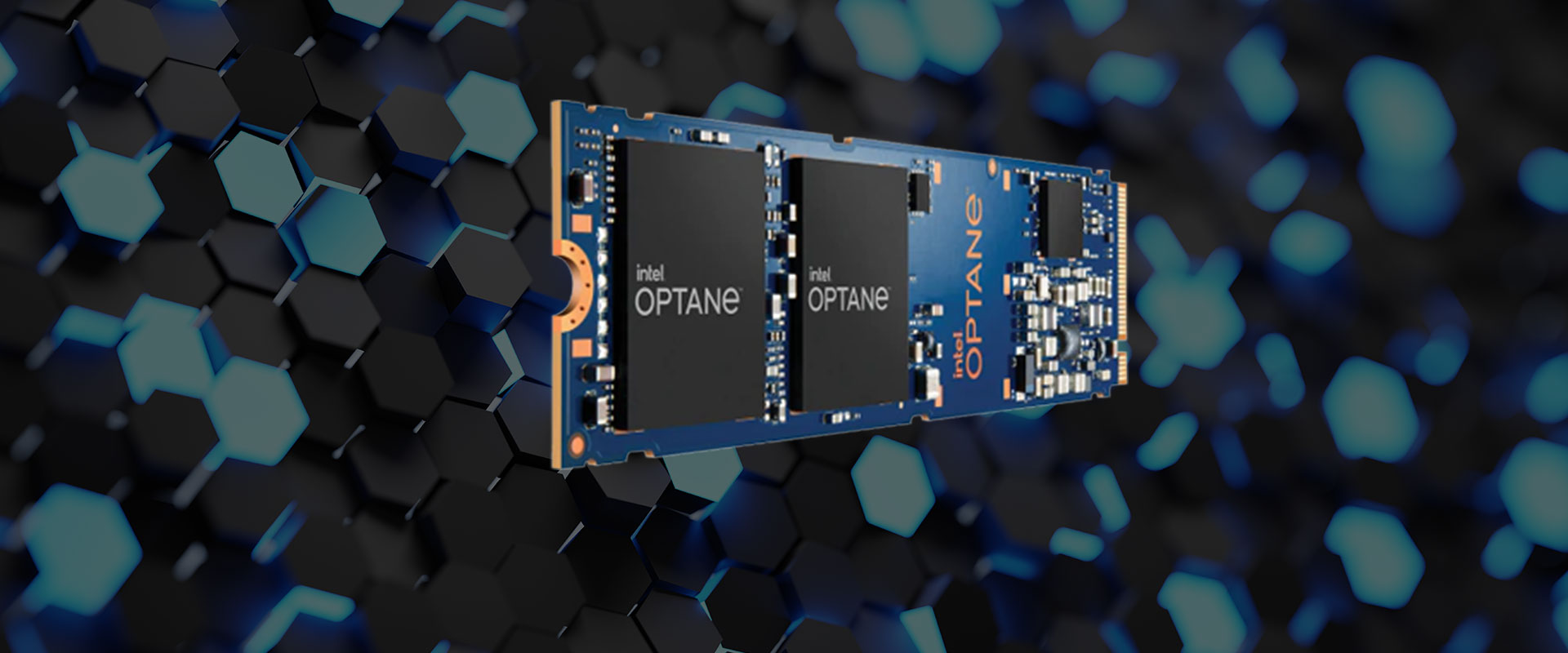Having completed a thorough testing regiment, Intel® Optane™ P1600X SSDs have now been certified to work with Open-E JovianDSS, and are strongly recommended as a well-performing boot medium device.
Download the Intel® Optane™ Solution Brief:
Overall Review
The Intel® Optane™ P1600X, one of Intel’s newest products, is a great addition to any data center or enterprise-grade solution. The Intel® Optane™ P1600X 118GB variant is particularly well suited to being a boot medium as it’s just the right size, which, when combined with its powerful performance capabilities and low latency makes it ideal for that role. Another variant, the Intel® Optane™ 1600X 58GB was tested as well, but due to the limited capacity can be only recommended for some specific business usages, as a boot medium with minimal management requirements.
The Intel® Optane™ P1600X 118GB SSD as a Boot Medium
So why is the Intel® Optane™ P1600X 118GB so well suited to being a boot medium in enterprise-level data storage setups? Well, for one, it’s an SSD that has extremely good performance, particularly given its size. In both sequential and random reads, it was able to outperform the regular SSD Intel drive, the Intel S4510, when used as a boot medium. The same thing can be said about its latency performance, with the Intel® Optane™ P1600X 118GB being able to outperform the Intel S4510 by maintaining lower latency under various loads.
Tied to that, it’s rather small compared to those usually found in enterprise solutions. At 118GB, it doesn’t really have the staying power to be considered as a bona fide contender for taking up space as a data disk in a storage solution. That being said, it’s the ideal size if you’re looking to boost how fast your solution starts up. Furthermore, there are no real downsides to using the Intel® Optane™ P1600X as a boot medium, unlike in certain other roles where its size or endurance might prove to be more detrimental.
As such, we can provide the highest level of assurance that the Intel® Optane™ P1600X is suitable as a boot medium for anyone looking for such a device, particularly if they’re aiming for it to serve critical business applications and they have a moderate-sized storage capacity. It’s also suitable for organizations looking to work with High-Performance Computing (HPC), Artificial Intelligence/Machine Learning/Data analysis applications, and for data center service providers (particularly those focusing on premium performance services).
The smaller of the two variants tested, the Intel® Optane™ P1600X 58GB, can actually also be used as a boot medium but not in all setups due to the fact that it’s limited to only very few, sometimes even one OS version. As such it can be used in some smaller setups since fewer OS versions result in limited system management possibilities.
The Intel® Optane™ P1600X SSDs in Other Roles
In addition to being used as a boot medium, the Intel® Optane™ P1600X in the 118GB version can also be used as a write log for HDD, and sometimes for SSD QLC NAND data disks (read the previous article that showcases all the limitations of using Intel® Optane™’s with SSD QLC NAND drives) in some specific setups. It can be considered in data storage solutions with fewer than 600GB writes operations per day, to ensure the 5 years of the warranty period. The M2. interface of the drive also affects its output as a write log, because it limits the number of devices that can be used (taking into consideration that the smaller capacity of the drive, more drives need to be added to the setup). As such, while we can confirm that the Intel® Optane™ P1600X will work as a write log device, it’s not optimally utilized in all the data storage setups.
Final Remarks
Having covered the overall testing, practical uses, and some specific testing scenarios, we believe it’s fair to say that the Intel® Optane™ P1600X works very well with Open-E JovianDSS in enterprise-level data storage appliances. If you’re interested in a deeper look at how the Intel® Optane™ P1600X performed, feel free to read our report. If you’d like to find out how the other two SSDs we tested for certification, the Intel® Optane™ P5800X and the Intel D7-P5510, performed, we have reports on those as well. So what do you think, is the Intel® Optane™ P1600X worth the investment? Do you prefer the 58GB or 118GB version? Let us know in the comments below!





